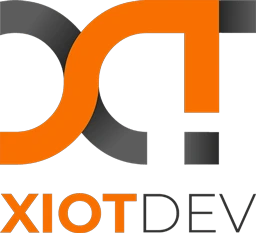Navigating the New Normal with Next-Gen Enterprise Applications

Over the past few decades, we have witnessed significant changes in the continuously transforming business environment, as enterprises are already adjusting to the new normal characterized by uncertainty, high rates of innovation, and rapidly evolving customer expectations. This change is not short-lived; it is a long-term process that requires more intelligent tools, a firm infrastructure, and wise decision-making.
The market for AI technologies is vast, amounting to around 244 billion U.S. dollars in 2025 and is expected to grow well beyond that to over 800 million U.S. dollars by 2030. Enterprise applications that harness the power of AI and other emerging technologies are now at the forefront of how businesses operate, communicate, and grow.
These technologies enable organizations to be stronger and more responsive towards data and the future. In the redefinition of the digital success path, empowering businesses with the adoption of these advanced systems is a vital mission of any AI solutions company.
The rise of next-gen applications in the enterprise world
The next-gen is not limited to the aspect of digitization. Such applications should be intelligent, scalable, cloud-based, and performance-oriented. They utilize such technologies as:
- Artificial Intelligence (AI) for predictive analytics, automation, and personalization
- Cloud Computing to enable flexibility, remote access, and cost optimization
- Data Analytics to derive meaningful insights from enterprise data
- Internet of Things (IoT) for real-time monitoring and control
- Robotic Process Automation (RPA) to eliminate repetitive manual tasks
These elements bring next-gen applications to the forefront of end-to-end digital transformation, enabling businesses to automate processes, conduct better decision-making, and support overall collaboration within the enterprise.
How do these applications help enterprises embrace the new normal?
1. Agility and scalability
The new era of business cannot be based on the inflexible old systems. The new normal then requires them to have agile platforms that respond swiftly to the changing market scenarios, regulations and customer behaviours.
Next-gen applications provide:
- Modular architecture that supports quick updates and customization
- Seamless integration with other systems and platforms
- Cloud-native infrastructure that allows for scaling based on demand
This enables businesses to introduce new services, expand their operations, and address challenges without the need to restructure the entire system.
2. AI-Driven decision making
Artificial Intelligence is not a futuristic thing anymore, it is a solution built into the current functions of enterprises daily. Businesses capable of utilising AI-powered applications can transform their decision-making process into a data-driven approach.
Primary AI functions are:
- Predictive analytics: Anticipate market trends, customer behavior, and operational risks
- Natural language processing: Automate customer support, sentiment analysis, and feedback processing
- Machine learning: Identify patterns and anomalies that humans may miss
These AI tools enable faster, smarter, and more informed decision-making, aligning with real-time data.
3. Remote work enablement
The hybrid work format is now prevalent in most industries. The next-gen applications are designed in a way that they allow distributed teams and provide a strong remote access, cloud-based collaboration, and secure data sharing.
They support:
- Integrated communication tools (video, chat, email)
- Cloud-based project management platforms
- Real-time document collaboration and storage
This digital-first approach fosters productivity and employee engagement, no matter where teams are located.
4. Enhanced customer experience
Today, the contemporary customer demands speedy, personalised, and smooth experiences. Next-gen enterprise applications help companies deliver these expectations with AI and real time data.
Benefits include:
- Omnichannel communication with customers
- Hyper-personalization of marketing messages and services
- Chatbots and virtual assistants that provide 24/7 support
Such applications help businesses attract, engage, and retain customers in a highly competitive environment.
Key sectors benefiting from next-gen applications
Next-generation applications are transforming a wide range of industries. Following are some illustrations of how they create change:
- Retail: Recommendation engines, inventory tracking and personalized marketing can be based on AI.
- Retail: Personalized marketing, AI-based recommendation engines, and automated inventory tracking.
- Healthcare: Distance diagnostics, observing patients, and appointments scheduling with artificial intelligence.
- Production: IoT and AI applied in smart plants in terms of predictive maintenance and automation of manufacturing processes.
- Finance: AI on fraud detection, risk modeling, as personalized financial advice
- Learning: Virtual classrooms, AI-based tutors and individual learning paths
The scope of benefits offered by such applications within the sector renders businesses more effective, client-centered, and competitive.
Why are AI solutions companies driving this transformation?
AI solutions companies play a vital role in creating and implementing next-generation applications that meet the requirements of enterprises. Such companies possess outstanding knowledge and experience in machine learning, data science, and software architecture, which enables them to run businesses through every step of the transformation, from strategy to implementation.
Their contributions include:
- Assessing current digital maturity and identifying gaps
- Designing custom AI and automation solutions
- Integrating modern applications with existing enterprise systems
- Ensuring security, scalability, and compliance across platforms
- Providing ongoing support and performance optimization
By partnering with the right AI solutions provider, enterprises gain access to the tools and talent necessary to accelerate their journey into the future.
Future-ready enterprises – Key characteristics
To thrive in the new normal, businesses must evolve into intelligent enterprises. Here’s what sets future-ready enterprises apart:
- Proactive over reactive: Using AI to anticipate issues and act in advance
- Data-first culture: Emphasizing data-driven strategies at every level
- Innovation mindset: Continuously adopting new technologies and agile frameworks
- Customer-centric operations: Prioritizing customer needs and feedback
- Sustainable growth: Leveraging automation and analytics to optimize resources
Next-gen applications help embed these characteristics deeply within the organizational DNA.
Final thoughts
The new normal is not a short-lived situation but a prolonged change and requires smart solutions. Companies using next-gen applications are in a better position to respond to uncertainties, succeed against competition and bring substantial customer value.
The mission of any company is simple to aid businesses to create more intelligent and durable agile systems. Undoubtedly, the new generation of applications can only be powered by AI-based decision-making, next-level cloud platforms, and digital customer experiences, then it is not an option anymore, it is the new base of a successful enterprise. In this new age, enterprises that pursue next-gen innovation now will be the benchmark of tomorrow.
What to read next
Revolutionizing Manufacturing: The Impact of IoT Mobile Apps on Predictive Maintenance
Revolutionizing Global eCommerce: How Technology is Redefining the Payment Experience
Mastering Local SEO for Restaurants, Bars, and Breweries: A Complete Guide
Let’s Start a discussion!
Do you have a web design idea? Want to turn your idea into a realistic website? Let’s put efforts together to get an efficient and market-ready website.
